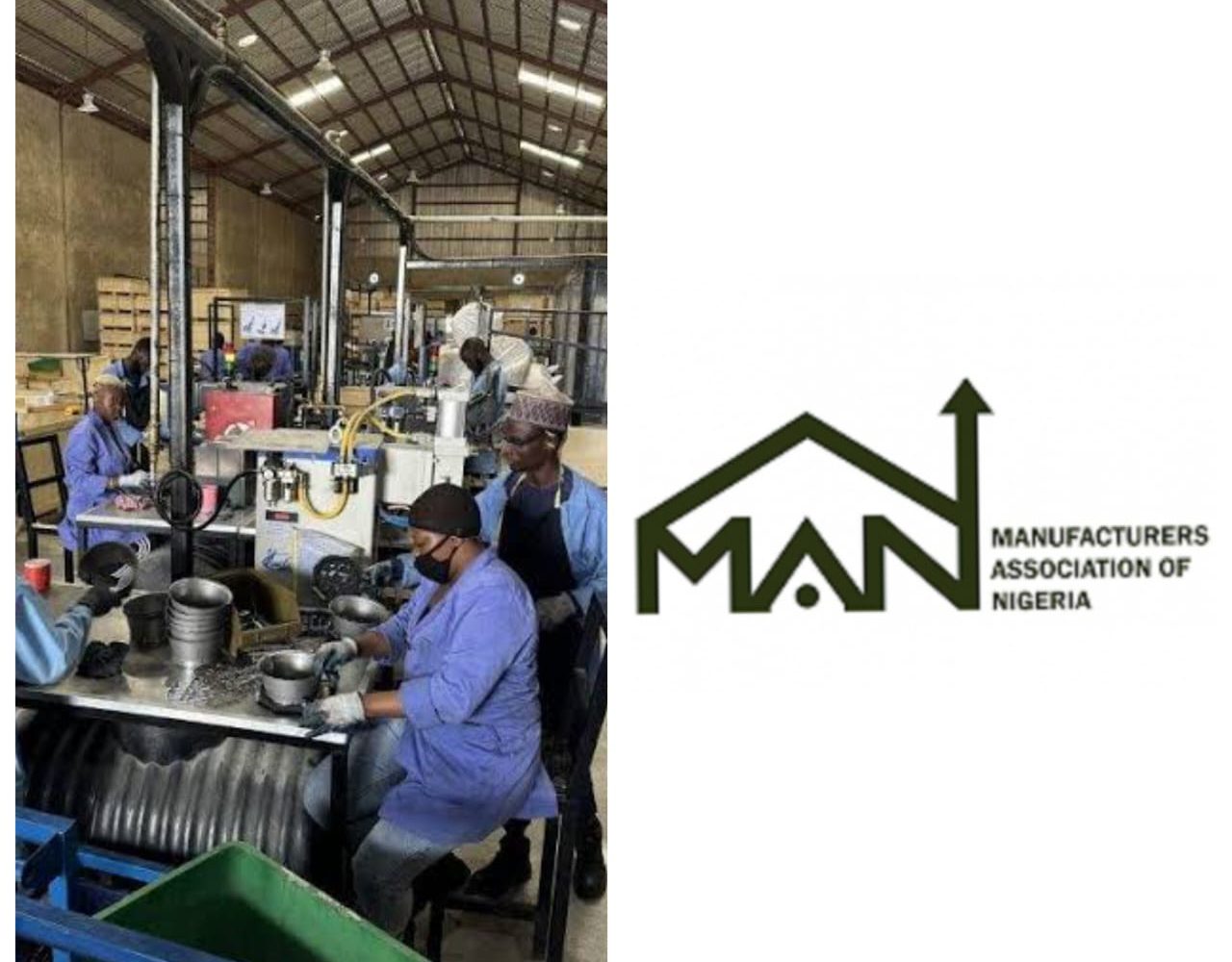By Barnabas Esiet.
The manufacturing sector is a vital component of any country’s economy. Manufacturing is a significant source of employment, providing jobs for millions of people worldwide.
The United States Bureau of Labor Statistics in 2022 reported that the manufacturing sector employed over 12.8 million people, accounting for about 8.5% of the country’s workforce.
Also, the National Bureau of Statistics of China report in 2022 indicates that China’s manufacturing sector employs over 100 million people, accounting for about 30% of the country’s workforce.
In developing countries, manufacturing can be a crucial sector for creating employment, investment opportunities and reducing poverty.
In Brazil, for example, available data shows that the manufacturing sector has driven investment in infrastructure development, with about $500 billion invested in projects between 2015 and 2020 as reported by the country’s Ministry of Finance.
Statistics South Africa, also reports that the manufacturing sector employs over 1.4 million people, accounting for about 12% of the country’s workforce.
In Nigeria, the National Bureau of Statistics in 2022 reported that the manufacturing sector employs over 1.2 million people which represents about 10% of the country’s workforce.
The sector has the potential to become a significant contributor to Nigeria’s economy, however, despite this potential, numerous headwinds have hindered its growth and development.
Challenges Facing Nigeria’s Manufacturing Sector
Numerous challenges have hindered the growth and development of the sector in Nigeria. Many companies in the country have been forced to relocate while others have closed shop owing to these challenges.
Some of the headwinds include inadequate infrastructure, inconsistent government policies, high cost of production and state of insecurity.
Inadequate Infrastructure:
Inadequate infrastructure is a major challenge hindering Nigeria’s manufacturing sector.
The country’s infrastructure is in a state of disrepair, with poor roads, inadequate electricity supply, and inefficient port facilities. This has made it difficult for manufacturers to operate efficiently and effectively.
According to data from the Manufacturers Association of Nigeria (MAN), in 2020 the Nigerian manufacturing sector lost an estimated N1.4 trillion (approximately $3.7 billion) due to inadequate infrastructure.
Inconsistent Government Policies:
Inconsistent government policies are another challenge facing Nigeria’s manufacturing sector. Government policies are often unpredictable, making it difficult for manufacturers to plan for the future.
For instance, successive administrations in the country have implemented the banning and unbanning of the importation of certain products available locally.
This has led to a lack of confidence in the government’s ability to provide a stable and supportive environment for manufacturers.
High Cost of Production:
According to MAN, the cost of production in Nigeria has remained high due to the high cost of raw materials and loanable funds , exorbitant energy cost, inefficient supply chain, multiple taxation, and illegal levies among other factors.
This has made it difficult for Nigerian manufacturers to compete with their foreign counterparts.
For example, the cost of electricity in Nigeria is significantly higher than in other African countries, making it difficult for manufacturers to operate profitably (NEP, 2020).
MAN’s survey report painted a grim picture of the country’s manufacturing sector in the first half of 2024.
Director General of MAN, Segun Ajayi-Kadir, noted that despite resilience in some sectors, the industry faced significant headwinds, including high operational costs, declining consumer demand, and rising inflation.
The government’s policy, prompting removal of subsidy on petroleum products during the year, led to increase in prices of fuel with ripple effects in the value chain, which added to production costs.
Insecurity:
The deteriorating state of insecurity in Nigeria is a cause of concern for the Manufacturers. The Association has consistently expressed fears that if the current state of insecurity is not promptly tackled, investor confidence in the country would wane, posing a significant threat to businesses and the overall economic development of Nigeria.
The kidnap of the Chief Executive of Fouani Group in Nigeria in June 2024 is a case in point. The state of insecurity has forced many companies to relocate from volatile places across the country.
MAN’s Intervention
The umbrella organization for manufacturers in Nigeria, has been working tirelessly to promote the interests of manufacturers and address the challenges facing the sector.
Advocacy
MAN has been advocating for policies that support the growth and development of the manufacturing sector.
The association has been engaging with government agencies, policymakers, and other stakeholders to promote the interests of manufacturers.
The President of MAN, Francis Meshioye, has been in the forefront of the advocacy urging the Monetary Policy Committee (MPC) and the Central Bank of Nigeria (CBN) to implement policies that promote macroeconomic stability and expansion of manufacturing activities across the country.
Capacity Building
MAN has been providing training and capacity-building programs for manufacturers to enhance their skills and knowledge.
For example, MAN has been providing training programs on quality management, supply chain management, and entrepreneurship.
Research and Development:
MAN has been conducting research and development activities to identify new opportunities and challenges in the manufacturing sector.
The association has conducted research on the impact of the African Continental Free Trade Area (AfCFTA) on the Nigerian manufacturing sector.
Opportunities Available for Growth and Development
Despite the challenges facing Nigeria’s manufacturing sector, there are numerous opportunities available for growth and development. Some of these opportunities include a growing domestic market, regional market, and export channels.
Growing Domestic Market
Nigeria has a growing domestic market, with a population of over 200 million people. This provides a significant opportunity for manufacturers to produce goods for the local market.
According to data from MAN, the Nigerian manufacturing sector has the potential to produce goods worth over N10 trillion (approximately $26 billion) annually.
The country also has numerous export opportunities, particularly in the areas of agriculture, solid minerals, and manufacturing.
Regional Market
Nigeria is also a member of the Economic Community of West African States (ECOWAS), which provides access to a regional market of over 300 million people.
This offers a significant opportunity for Nigerian manufacturers to produce quality products that meets international standards for export to other West African countries.
Data indicates that Nigeria’s exports to other ECOWAS countries in 2020 totaled over N1.3 trillion (approximately $3.4 billion). Analysts say there is room for improvement.
Proposition
Industry Analyst, Caulcrik Akinyele, believes that beyond the numerous challenges, the manufacturers can only be competitive by upscaling the quality of their products.
He argued that with “high quality in production and packaging, which has nothing to do with power but paying considerable attention to detail to produce world-class products, global shippers would put velocity into their inventories.”
Caulcrik highlighted that technology has made grid power less competitive in manufacturing, as manufacturers now embrace the combined heat and power technology and sell excess power to power utilities while reducing production costs.
Closure
Nigeria’s manufacturing sector faces numerous challenges that have hindered its growth and development.
However, there are numerous opportunities available for growth and development, including a growing domestic market, regional market, and export opportunities.
MAN has been leading the campaign to promote the interests of manufacturers and address concerns in the sector.
With the right policies and support of the government and other stakeholders, Nigeria’s manufacturing sector has the potential to become a significant contributor to the country’s economy and the African continent as a whole.









Comment here